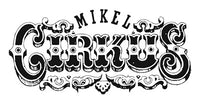Judgement Call
When you decide to become a commercial artist, the secret skill that is the hardest to master, is the one of judgement. Your customer's assignment to you, at first is a problem to solve for them, but it becomes your problem when you need to decide that you've actually solved it, that you're done working it out, sketching it or mocking it up, because you think "this is it." On the very rare instance, it comes to you in some sort of vision-like stroke of genius that is like getting up to bat and hitting a home run on the first pitch, while more often than not, it takes hours, maybe even days before you come to that 'A-Ha' moment. Essentially, with the right business sense, your customer is paying for the one good idea in the end, whether it took you ten minutes or ten hours they may never know. And honestly, it's not their problem.
Putting a value on the work itself is an entirely different skill, and ultimately becomes critical to being in business. Dividing ALL of your operating expenses by days in a week and hours in a day to come up with a billable hourly rate for your services is the basic formula, and at minimum the starting point, but putting a price on creativity, on thinking, on what your ideas are worth, is a much tougher sale. "This only took me a couple hours to do, but it's worth a week's worth of my time just thinking about it first," never really looks right on the invoice, never mind trying to estimate before beginning the project. It's not a question of what your time is worth, but a question of what your mind is worth. Taking into consideration the size of the customer or their industry, thinking that because they're a mega-corporation they have millions, so I'll charge them more, but the little guy with his one-off store or service is inherently smaller, so I'll charge him less, actually tends to backfire. Allen Kay gave me the best advice on pricing my work, when he told me, “If you charge too much, they’ll tell you. If you don’t charge enough, they won’t.” I had one client that accused me of charging him as much as he pays his lawyer, so I told him, “Next time, try having your attorney design your brochure for you.”
You judge yourself and your work before you bring your solutions, your concepts and designs, to the customer. Much the same way you judge the work that you’ve successfully completed to decide if it’s “book worthy.” Is it a piece you feel good enough about to put in the portfolio, and if so, is there room in there for it, or do you now need to judge it against your other successes to decide if it’s better than something you’ve already done, and possibly to replace a lesser-than piece? Will it up your game, increase your worth, or maybe convince a new customer that you can solve their design problem too – just as well?
The Inhouse portfolio didn’t have any product packaging in it, and as such, we couldn’t get any package design projects from potential customers, because they felt that if I hadn’t done any, I couldn’t do any. That is, until I met the owner of Glissen Chemical, one of the most positive people I’d ever met, Joe Lehr. Whenever I would ask him, “How are you, Joe?” he would always answer in the third person, “Joe Lehr is excellent!” His company made commercial cleaning supplies, specifically big cans and jugs of industrial liquid soap. He was developing a new brand of his soap that was specially formulated for, or really just marketed to, delicatessens. He was calling it Deli-Suds, and he was willing to give me the chance to design, illustrate, and produce the graphics for his one gallon can of soap – which he took very personally. The can was designed to look like it was a building from old New York, and Joe began to have me add in his personal touches - like a pickle barrel with his name on it, but I drew the line when he asked me if I could put his mother in the window. Once completed, Deli-Suds was officially my first packaging design piece, and you can be sure a photo of it went right into the portfolio, but when it received a Silver Medal in Package Design from the Art Director’s Club of NJ, it also gave Inhouse Productions the privilege of referring to ourselves as, an “Award-Winning Studio.”



Good one!! Those scotch bottles could use some creative design work😉
Leave a comment